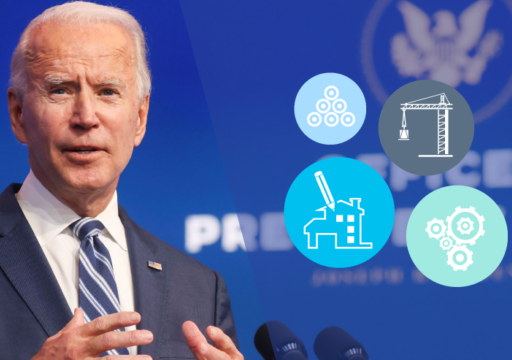
After performing work on the NAVFAC Naval Station Guantanamo Bay Cuba W.T. Sampson School, Ion Electric LLC has filed a Miller Act claim seeking nearly $10 million in non-payment.
The K-12 educational facility is located on the naval base at the infamous Guantanamo Bay, Cuba prison facility maintained by the United States government — a facility that has been under heavy scrutiny since the Obama administration and may face closure in the coming years.
The Florida-based Ion Electric entered into a subcontract with prime contractor Munilla Construction Management LLC on March 1, 2017, incorporating a master subcontract agreement that dated back to May 28, 2014.
According to Ion Electric’s Miller Act filing, the company is seeking to recover damages that resulted from Munilla Construction’s failure to pay the amount due for its work.
The Federal Miller Act provides that any party who “furnishes labor or material” on a project is entitled to a level of protection when it comes to payment. However, “first tier” and “second-tier” subcontractors — those who contract with a project’s general contractor or a “first-tier” subcontractor — specifically have rights under the Miller Act, giving Ion Electric full protection as a first-tier subcontractor.
The project itself consisted of the construction of the educational facility at the US Naval Station, and Ion Electric’s subcontract came with an initial value of $18,200,000. According to documents, Ion Electric was responsible for “installing the mechanical, fire protection, plumbing, low voltage, and electrical scope of work” at the facility. Ion currently claims $9,592,192.77 in non-payment.
The Guantanamo Bay facility was originally set up to house foreign suspects following the September 11, 2001, attacks on New York City and Washington, D.C. In the years since, the prison has become one of the most notorious parts of the US “war on terror” due to the interrogation methods used on its prisoners, most of whom have been held for almost 20 years without being charged or tried.
Scheduling problems, labor issues held back work on the project
Ion Electric claims that a multitude of problems delayed its work on the project, adding that blame for delays should not be put on their company.
Scheduling delays were a major issue for Ion Electric in its work on the facility — as documents note, NAVFAC recognized 610 days of excusable delay on the project.
Learn more – Construction Delay: Types, Claims, and Defenses
As a result of this, Ion Electric claims that it “was unable to progress its work as it had reasonably planned as a result of the magnitude of impacts to the schedule that were outside of its control and without its fault or negligence.”
The company also claims that labor issues significantly held back the project, as well. Documents allege that Munilla Construction instructed the company to use specific companies that provided labor at Guantanamo Bay, but found that the promised workforce was unavailable, changing the financial outlook of the project.
According to court documents, on November 3, 2015, Ion’s Chuck Hunt asked Munilla Construction whether a local labor force would be available for the project. Responses from a company official stated that “local labor is available through a Philippine agency that supplies trade labor,” passing along information that contained a list of trades with the correlating hourly and monthly rates.
As per Ion Electric, it “did in fact rely on the availability and rates for a labor force from Parman, Inc., a Filipino hiring agency.” However, documents note that “Once the Project began, Ion quickly learned that the promised workforce was not available to Ion.”
As a result of the promised workforce being unavailable, the company ended up employing laborers from Barbados and Jamaica — however, these workers came at rates that were “multiples higher” than those relied on in Ion Electric’s original proposal. Additionally, the company also had to use labor forces provided to them by MCM — forces that were then back charged to Ion Electric.
Ion Electric noted that this change significantly affected the outlook of the project’s finances: “During bid time, Ion was directed by MCM to rely upon the use of a particular labor force at particular prices in preparing its quote.”
According to documents, the company’s initial bid estimate provided for a labor cost of $4,281,748.00 before mark-up. However, the failure to secure the promised labor force after Munilla Construction directed Ion Electric to rely on those rates resulted in an actual labor cost of $8,583,269.35: “Ion’s actual labor costs, before MCM labor back charges and mark-up are added were $4,301,521.35 higher than estimated based on MCM direction.”
COVID-19 “stranded” workers at project site
Additionally, Ion Electric noted that COVID-19 significantly impacted its productivity on the project — claiming that government regulations heavily hampered the company’s ability to productively work with its labor force as “The Covid-19 global pandemic dramatically impacted the work schedule on the Project.”
As per court documents, the company “experienced delays in obtaining entry clearance for both labor and items being shipped to Guantanamo Bay that were outside of its control and without its fault or negligence.” Ion Electric claims that the various entry clearance delays contributed heavily to the overall 610-day delay experienced on the project.
The company noted that it “incurred additional labor, field overhead, and home office overhead expenses in the amount of $178,435.00 as a result of the entry clearance delays.”
Additionally, the federal government put in place mandatory 14-day quarantine periods for
anyone coming to Guantanamo Bay as a result of the pandemic, and other countries from which Ion Electric was obtaining its workforce either “closed their borders or created a return 14 days quarantine.”
According to Ion Electric, “the quarantine orders rendered it impossible for Ion to demobilize or
move workers into and out of active roles on the Project…As a result, Ion effectively had its entire workforce, often idle, stranded at the Project site from mid-March 2020 through early to late summer 2020.”
The company claims that it “incurred significant additional costs in maintaining its entire
workforce in Guantanamo Bay for months without interruption,” adding that without the delays to the project caused by Munilla Construction “outside of Ion’s control, Ion would have completed its scope of work prior to the delays caused by Covid-19.”
Biden administration has made closing the Guantanamo Bay facility a quiet priority
Ion Electric’s claim comes at a time when the ever-controversial Guantanamo Bay facility’s operations seem to be in as much doubt as they ever have been, as President Biden and his administration have made it clear that they intend to move towards closing the facility.
White House spokeswoman Jen Psaki told reporters in February 2021 that “[closing the Guantanamo Bay facility] certainly is our goal and our intention.”
“We are undertaking an NSC process to assess the current state of play that the Biden administration has inherited from the previous administration, in line with our broader goal of closing Guantanamo,” added National Security Council spokeswoman Emily Horne.
Horne said that “The NSC will work closely with the Departments of Defense, State, and Justice to make progress toward closing the GTMO facility, and also in close consultation with Congress,” noting that one of the possible hurdles the closure will face is Congressional pushback.
However, this doesn’t necessarily mean that the government will be shutting the facility down any time soon. After the Biden administration’s cancellation of the similarly controversial border wall between the United States and Mexico, $1.3 billion was returned to military projects on overseas bases — including funding for the Guantanamo Bay prison facility in order to build a new communications facility, new detention legal office, and new working animal treatment facility.
As the year has gone on, officials have noted that the administration may take a slower approach to the closure. “They don’t want it to become a dominant issue that blows up,” a former senior administration official said of the administration. “They don’t want it to become a lightning rod. They want it to be methodical, orderly.”

11 Ways President Biden Plans To Impact Construction